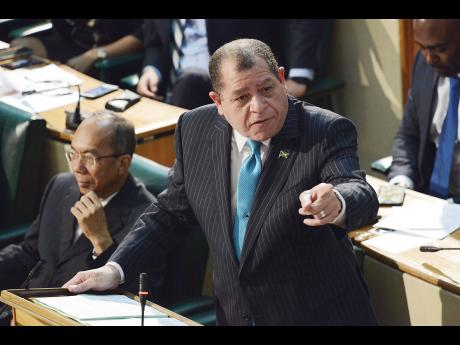Rosalea Hamilton | New property tax regime will kill MSMEs
Although Finance Minister Audley Shaw announced reductions in the rate of property tax during his presentation in the House of Representatives on April 11, 2017, the new regime will still deal a devastating blow to many micro, small, and medium-sized enterprises (MSMEs) that are on the margin and struggling to survive. For those with a substantial potential for export and productivity growth, their demise will undermine economic growth.
The rate reductions include a decrease in the tax range from 0.8 -1.3 per cent to a new range of 0.5-0.9 per cent and a reduction of taxes on commercial properties from 137 per cent to 58 per cent. Nonetheless, MSME property owners of land valued over $20 million will see property tax increases between 200 and 600 per cent. So, although there is a further reduction in the tax rates, property owners will still face higher taxes because of the shift from property valuations based on 2002 values to the significantly higher ones of 2013. But that's not all.
Many MSMEs will face the associated increase in the asset tax if the new values push the asset tax rate to a higher value band. Currently, MSMEs with assets valued between $0.5m to less than $5m pay $50,000 in annual asset tax. This annual tax will now increase to $75,000 if the new 2013 property valuation pushes the value up to $5m or less than $50m, or will increase to $100,000 if the new valuation is $50m or more.
Some MSME tenants will pay the additional tax directly if their lease provides that property taxes are payable by the tenant. Where property taxes are included in the rent, MSME tenants will see an increase in rent by landlords seeking to recover the additional tax.
Higher costs
So MSMEs will face higher costs of doing business, whether as landowners or as tenants. Unless MSMEs can increase their income to cover these increased costs of property, asset taxes and/or rental increases, as well as the higher costs associated with the new 2017-2018 tax package (i.e., gas prices, health insurance, motor vehicle licence and fees), many will be forced out of business.
To survive, some will try to sell their property. If many MSMEs take this action, this will worsen the asset inequality in Jamaica, which is estimated to be extraordinarily high, with a Gini coefficient of 0.76. Worsening asset inequality, coupled with growing income inequality, will be devastating for the Jamaican economy and society.
In addition to rising social instability, the Government ought to be concerned about achieving its 5-in-4 growth target. How will these taxes impact the growth drivers - the most productive firms with the greatest capacity to export?
An earlier Gleaner article (Hamilton & James, July 28, 2016) pointed to survey data suggesting that "establishments with the strongest productivity responses also possess the smallest average assets and, therefore, have the least capacity to effectively exploit their productivity advantages while creating jobs and exports".
Inadequate access
Any further shrinking of the asset base of such establishments will only worsen the problem of inadequate access to financing in a context where collateralised loans are still the main source of affordable credit to undertake serious projects.
So, instead of strengthening the asset base of these establishments, together with other supportive policies to enable them to grow productivity and exports, the new property tax regime may worsen the asset base of businesses with the greatest potential to drive economic growth.
Now more than ever, MSMEs, especially those with the capacity for high productivity and export growth, need to make their voices heard.
Minister Shaw has promised several relief mechanisms to facilitate complaints, appeals, and payment arrangements. When you get your property tax assessment, if you feel your valuation is too high, file an objection with the commissioner of land valuations or apply for statutory relief. When the special-relief committees are reconvened, as promised, MSMEs must ensure that their property tax assessments are reviewed. MSMEs experiencing hardship should also actively seek the 'special discretionary relief' of up to 100 per cent by making the case that "the circumstances warrant" it for survival.
- Rosalea Hamilton, PhD, vice-president, University of Technology, Jamaica, and former president of the Small Business Association of Jamaica Email feedback to columns@gleanerjm.com and rosaleahamilton@gmail.com.


